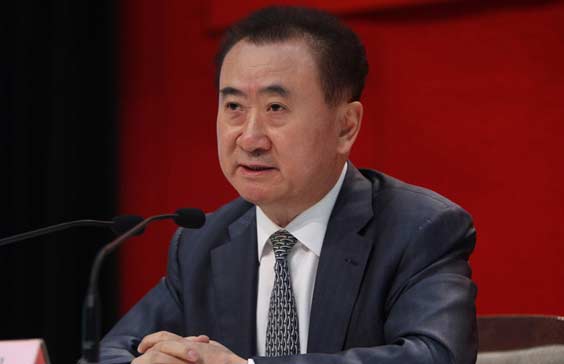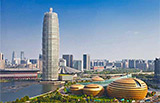The lucre of culture
By Liu Lu (China Daily) Updated: 2012-09-15 16:07On July 30 ICN launched a new program called This is Beijing, with in-depth tourism and cultural information about Beijing.
"As the capital of China, most foreigners see Beijing as standing for China, so we want to help people gain more understanding of contemporary China by showing a full picture of Beijing," Li says.
As part of Beijing's efforts to promote itself as a major cultural center, it is now building Beijing International Cultural Trade Service Center, the first cultural bonded zone in China. It is being built in Beijing Tianzhu Free Trade Zone, northeast of the capital.
|
 |
The cultural base, also known as the Beijing Freeport of Culture, is due to be completed by 2015 and is expected to become the largest cultural product trading market in Asia.
"Beijing is the country's largest production base for cultural products," says Wang Yudong, assistant general manager of Beijing Gehua Cultural Development Group, the operator and initiator of the duty-free port.
"It's also the largest consumer market for cultural products, and setting up the center in Beijing is in line with the city's needs and is also important in enhancing Beijing's cultural influence worldwide."
Wang says the bonded cultural zone will reduce the costs for domestic cultural enterprises in expanding abroad, making their products more competitive in global markets.
The center, costing 5 billion yuan, will cover a total floor space of 510,000 square meters, he says, and its annual turnover is forecast to be more than 50 billion yuan.
Based on the policies of the Tianzhu Free Trade Zone, the cultural base will provide bonded services to domestic and foreign cultural production, transmission and trade organizations.
Wang says the base has already attracted big international companies, including Euroasia Investment SA, Shun Tak Holdings Ltd, Sotheby's Auction House and the Ullens Foundation.
"We hope to attract more international cultural institutions and talent. We will create all the conditions to build this cultural free port in Beijing into Asia's largest trade hub in the cultural sector."
As growth policies are implemented, industry experts believe the prospects for Beijing's cultural and creative industry are promising, but they warn that the city needs to nurture a number of international cultural enterprises and influential cultural figures.
Chen Shaofeng, deputy dean of the Institute for Cultural Industries at Peking University, says that while there are many cultural enterprises in Beijing, "we still need to cultivate some industry leaders to lead the development of China's cultural industries, and to establish a financing platform for cultural enterprises".
He predicts the turnover of Beijing's cultural industry will account for 25 percent of the city's GDP by 2020, meaning the city will have achieved the international status it craves.
liulu@chinadaily.com.cn
- Innovation outline issued in culture, tech
- Financing for culture, media industry declines
- Ministry to encourage M&As of culture industry
- Fund to inject $157m into Chinese cultural firms
- Culture branding offers food for thought
- Cultural relic prepares to handle more tourists
- China's online cultural market expands
- Chinese creative firm aim for global market
- China's coal-producing province to reform electricity pricing
- China to play unifier, innovator role with 'Belt and Road'
- First electricity trading centers open in Beijing and Guangzhou
- Mainland entrepreneurs sparking boom in startups
- Chinese manufacturing hub on front lines of robot revolution
- More pro-growth policies expected for China's economy
- RRR cut boosts property stocks
- Wenzhou whizzes take it easy in realty market
















